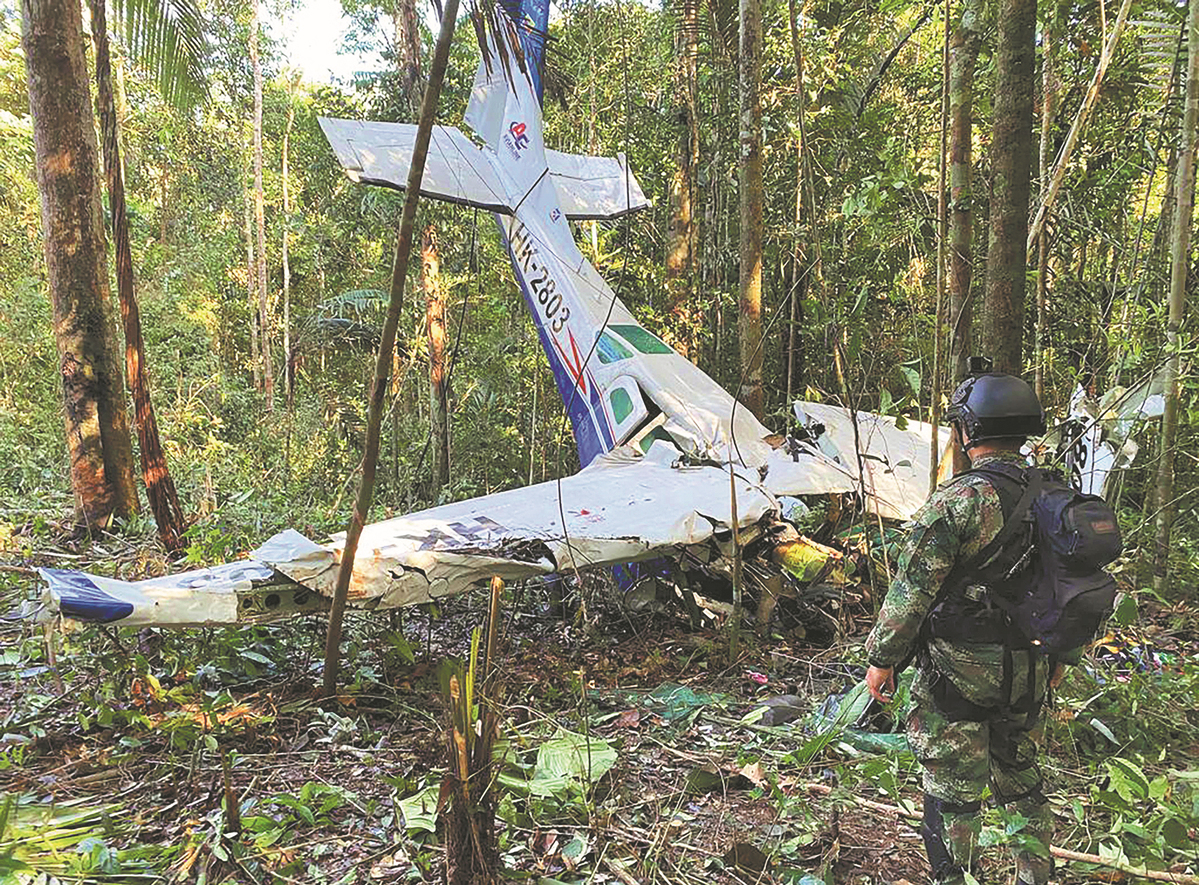How a miracle unfolded in the Colombian jungle


Helicopter deployed
When the children were found, they were too exhausted to hide anymore.
An army helicopter lifted them out of the jungle to an improvised helipad near the crash site.
From there, the children were flown to Calamar, Guaviare, 260 km away, before being taken to San Jose del Guaviare, from where a medical plane took them to a military airport in Bogota. They were then transported by ambulance to hospital.
The plane crashed as the children, their mother Magda Mucutuy and an indigenous leader were allegedly fleeing threats made by FARC guerrilla dissidents against the mother's partner, Manuel Ranoque.
Ranoque, father of the two older children, left their village a month earlier and paid for the charter flight for his family, aiming to reunite with them in San Jose del Guaviare. He has demanded protection from the government.
The Mucutuy children are from the Muinane ethnic group, which comprises about 500 people in the Amazon region.
A statement from the Caro and Cuervo Institute in Bogota said, "This community lives in fragile ecosystems in Amazonian territory, where it has developed slash-and-burn horticultural systems, in addition to hunting and fishing for commercial purposes."
Knowledge of the jungle may have helped the children survive.
Authorities also said that during their 40-day ordeal, the children ate cassava flour, of which there was about 1.36 kilograms on board the plane.
The flour was also included in the 100 or so survival kits dropped from the air.
The Colombian Ministry of Defense said that although the children were never afraid of being in the jungle, they hid from other people and helicopters.
This hiding has polarized public opinion in Colombia, with questions being asked about why Lesly, the eldest child, was so afraid. Her family in Solano had warned of abuse and family violence against Lesly's stepfather — the natural father of the two youngest children. Authorities have not allowed him to visit the eldest children in their rooms, and have confirmed that investigations are continuing.
"The Colombian Institute of Family Welfare, or ICBF, and delegates from the National Organization of Indigenous People of Colombia are coordinating with indigenous authorities to support decision-making by the Ethnic Family Ombudsman's Office in order to restore the children's rights," the ICBF said in a media release.
Narciso Mucutuy, whose daughter was the children's mother who died in the crash, is aware of the legal and administrative process that lies ahead.
"The children will remain in the custody of the ICBF, and after that we will reach an agreement so that they can be with us," he said in a recorded video message.
Mental health experts said healing will be difficult for the children.
Dora Garzon, a therapist, said: "With all the attention and everything that the government has promised, the easiest thing to do is place the children in a foster home. There, work can be done on the post-traumatic stress regarding the loss of the mother, to see how the children progress after the crash.
"Lesly's situation is extremely difficult. She is dealing with mourning the loss of her mother, post-traumatic stress after the accident, and the issue of malnutrition and everything that a month of hiding in the jungle entails," Garzon said. "It is very hard for the girl, because she assumed the role of a mother, and there is a background (of alleged abuse and family violence)."
Another investigation is underway by civil aviation regulators into what caused the plane, which was owned and operated by Avianline Charters, to crash. It had been rebuilt after crashing in the jungle in July 2021 due to engine failure, but it is still unclear if the rebuild met the manufacturer's standards.
Hernandez, the experienced pilot, said: "When there is an accident, it is because there is a chain of errors. In this case, one of the factors triggering the chain of errors could have been the pilot's decision to continue with the flight."
Government figures show there have been 10 accidents, five of them serious, involving civil airplanes in Colombia this year.
























